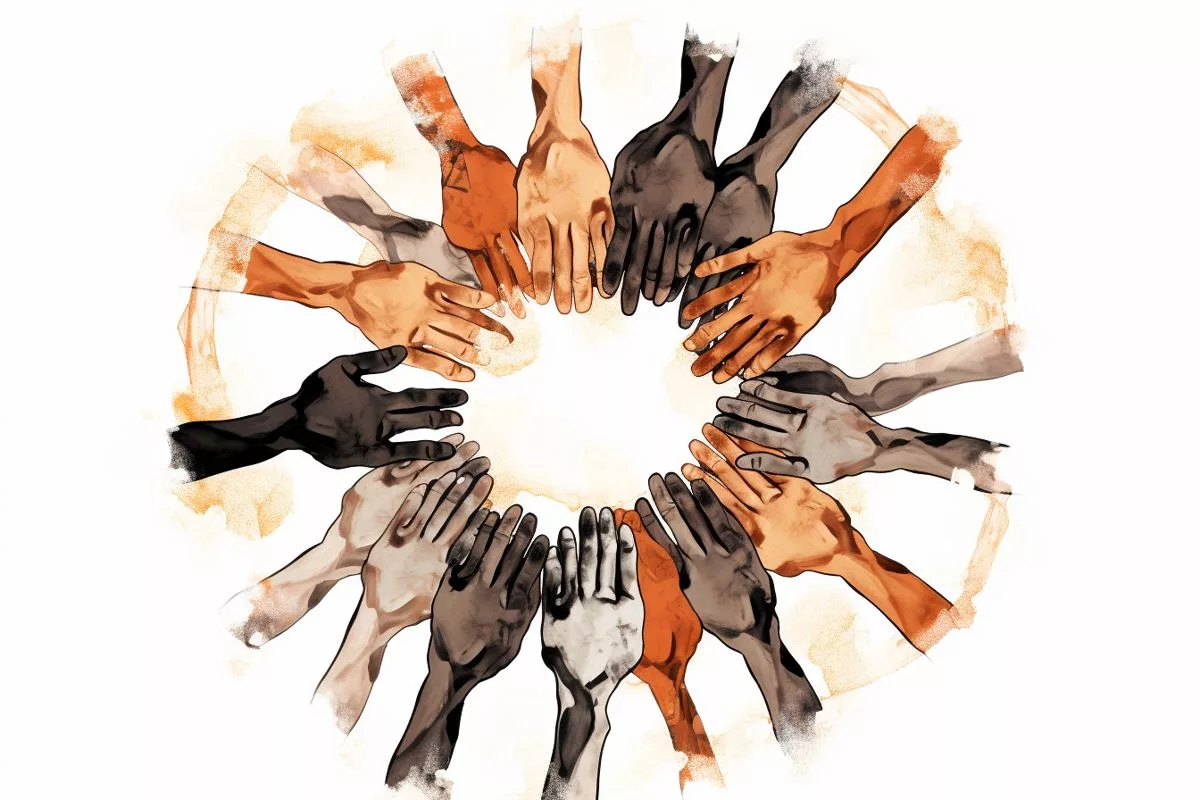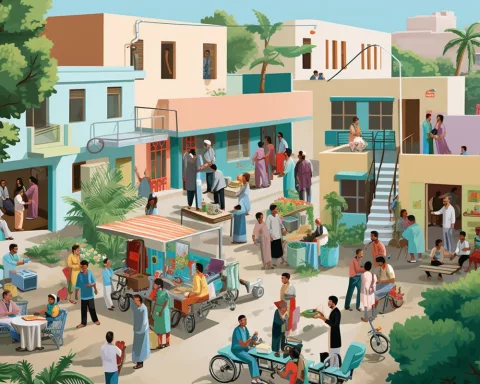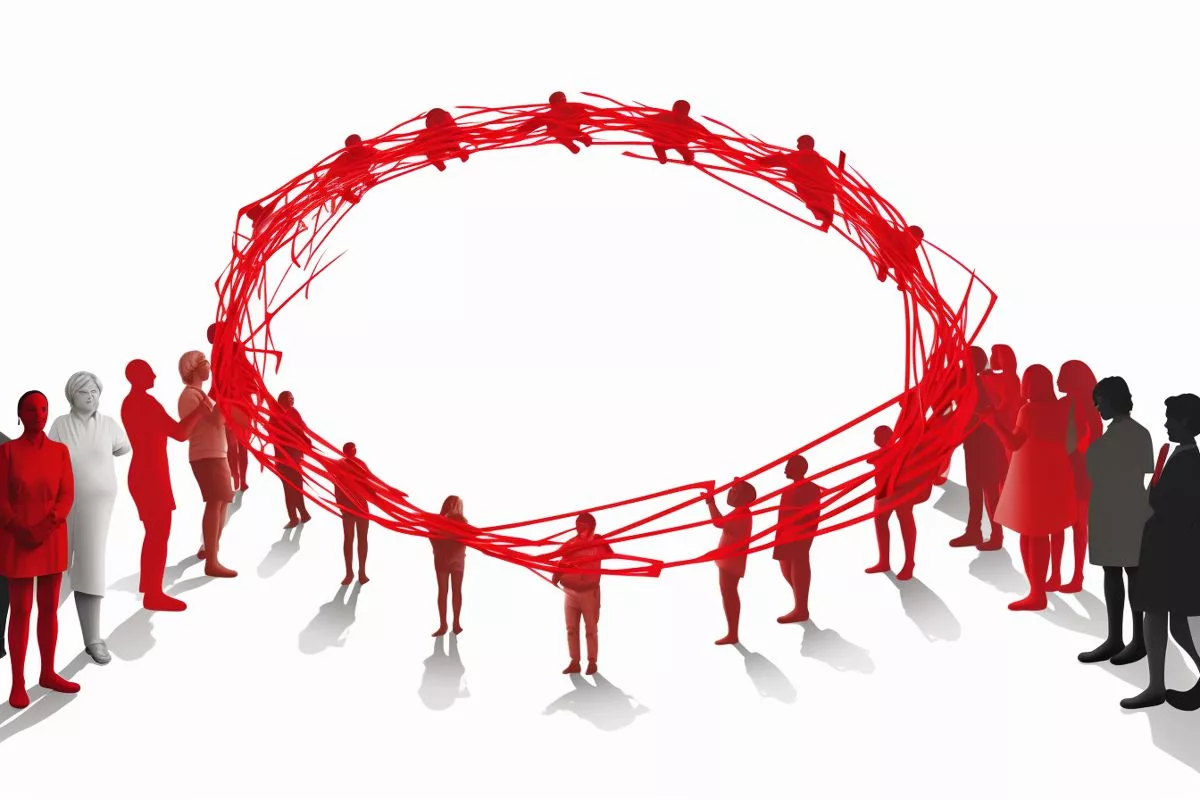The Expanded SANAC Forum’s Unity Call is a joint effort to combat the HIV/AIDS epidemic through a united approach, bolstered efforts, and unwavering commitment. The forum focuses on the intertwined issues of gender-based violence, femicide, HIV/AIDS, and mental health, with a particular emphasis on achieving the 95-95-95 targets. South Africa’s Deputy President presided over an enlarged SANAC forum, reminding attendees of their shared duty to fight against GBV and HIV/AIDS and stressing the importance of unity and commitment. The forum set the stage for a spirited, joint effort to tackle societal evils, with the power to alter the narrative lying in a united will.
What is the Expanded SANAC Forum’s Unity Call?
The Expanded SANAC Forum’s Unity Call is a joint effort of South Africa’s Deputy President and Chair of the South African National AIDS Council (SANAC), Mr Shipokosa Paulus Mashatile, and prominent figures from various sectors to combat the HIV/AIDS epidemic through a united approach, bolstered efforts, and unwavering commitment. The forum focuses on the intertwined issues of gender-based violence (GBV), femicide, HIV/AIDS, and mental health, with a particular emphasis on the 16 Days of Activism against GBV campaign and the goal of achieving the 95-95-95 targets. The SANAC Trust plays a vital role in coordinating the nation’s response to HIV, TB, and STIs and securing external epidemic funding.
Uniting for a Shared Cause
In the glow of a new day, South Africa’s Deputy President and Chair of the South African National AIDS Council (SANAC), Mr Shipokosa Paulus Mashatile, presided over an enlarged SANAC forum. The assembly was a conglomeration of prominent figures, spanning provincial leaders, ministers, civil society heads, and media cohorts, all with a common resolve to combat the HIV/AIDS epidemic that has devasted the country for years.
Mr Mashatile’s speech served as a potent reminder of the shared duty that the distinguished attendees bore. His speech, resonating through the gathering, was a reflection of his recent engagements with diverse communities and interest groups on the intertwined issues of gender-based violence (GBV), femicide, HIV/AIDS, and mental health.
A few days prior, Mr Mashatile had chaired the successful National Men’s Parliament and the inauguration of the Takuwani Riime Action Plan for 2023-2025 in Limpopo. This significant event encouraged essential conversations with traditional rulers and community constituents on the intrinsic ties between GBV, femicide, and HIV/AIDS.
The Struggle Against GBV and HIV/AIDS
The message conveyed by the Deputy President was unmistakable: the fight against GBV and HIV/AIDS necessitates a united approach, a bolstering of efforts, and an unwavering commitment. He underscored the importance of the 16 Days of activism against GBV campaign, urging for a ramped-up emphasis on awareness, advocacy, prevention, and societal behavioral change initiatives.
Central to Mr. Mashatile’s address was the poignant reminder that the plenary was convening only days prior to World AIDS Day, marked on December 1. This day, under the motto “Let Communities Lead,” is a reflective occasion on the nation’s strides towards eradicating HIV as a public health menace and putting an end to tuberculosis (TB) by 2030. Moreover, it is a day to pay tribute to the lives lost to AIDS-related complications.
The Focus on Children: Global Alliance to End AIDS by 2030
This year’s commemoration primarily revolves around the launch of the multi-sectoral Global Alliance to End AIDS in Children by 2030, a SANAC-driven initiative. Despite notable headway, achieving the 95-95-95 goals—95% of HIV-infected individuals aware of their status, 95% of those diagnosed receiving treatment, and 95% of those treated having suppressed viral loads—is yet an unfulfilled aspiration, particularly concerning children. The entire community bears the responsibility to ensure the estimated 36,544 children with an undetermined HIV status are identified and treated, a mission that the Global Alliance is primed to undertake.
SANAC Trust: Strengthening the Country’s Response
Shifting his focus to the SANAC Trust, the council’s administrative entity, Mr. Mashatile disclosed that the Trust was in the process of appointing members to two vacant board positions. He restated the Trust’s imperative role in coordinating the nation’s response to HIV, TB, and sexually transmitted infections (STIs).
Affirming his commitment to the stability of the Trust, Mr. Mashatile stressed its function as a channel for external epidemic funding. He reminded the attendees of the UNAIDS “Three Ones” methodology, advocating for One Coordination Structure, One National Strategic Plan, and One Monitoring and Evaluation Framework. Securing the SANAC Trust, he maintained, is a commitment South Africa cannot afford to compromise on if it is to end AIDS by 2030.
The Deputy President concluded his discourse with a proclamation of unity and dedication. He voiced the government’s steadfast commitment to the SANAC mission, encouraging civil society and the corporate sector to reaffirm their pledges.
The 2023 Expanded Plenary did more than offer insight into the current war against HIV/AIDS and GBV—it set the stage for a spirited, joint effort to tackle these societal evils. It was a reminder that the battle is far from over, that unity and commitment are indispensable, and that the power to alter the narrative lies in a united will. Echoing Mr. Mashatile’s words, “We can change the narrative, but we will only do so if we work together.”
What is the focus of the Expanded SANAC Forum’s Unity Call?
The Expanded SANAC Forum’s Unity Call focuses on combating the HIV/AIDS epidemic through a united approach, bolstered efforts, and unwavering commitment. It also focuses on the intertwined issues of gender-based violence (GBV), femicide, HIV/AIDS, and mental health, with a particular emphasis on achieving the 95-95-95 targets.
Who presided over the enlarged SANAC forum?
South Africa’s Deputy President and Chair of the South African National AIDS Council (SANAC), Mr Shipokosa Paulus Mashatile, presided over the enlarged SANAC forum.
What is the role of the SANAC Trust?
The SANAC Trust plays a vital role in coordinating the nation’s response to HIV, TB, and STIs and securing external epidemic funding. It is also responsible for appointing members to the board and ensuring the stability of the Trust.
What is the Global Alliance to End AIDS in Children by 2030?
The Global Alliance to End AIDS in Children by 2030 is a SANAC-driven initiative aimed at achieving the 95-95-95 goals, particularly concerning children. Its mission is to ensure that all children with an undetermined HIV status are identified and treated.
What is the UNAIDS “Three Ones” methodology?
The UNAIDS “Three Ones” methodology advocates for One Coordination Structure, One National Strategic Plan, and One Monitoring and Evaluation Framework. It emphasizes the importance of coordination and collaboration in achieving the goal of ending the HIV/AIDS epidemic.
What is the significance of World AIDS Day?
World AIDS Day, marked on December 1, is a reflective occasion on the nation’s strides towards eradicating HIV as a public health menace and putting an end to tuberculosis (TB) by 2030. It is also a day to pay tribute to the lives lost to AIDS-related complications.












